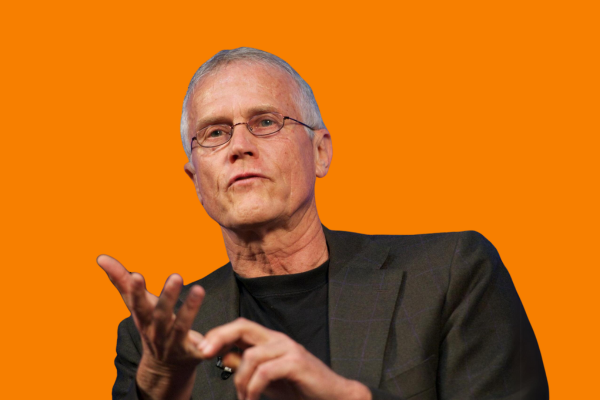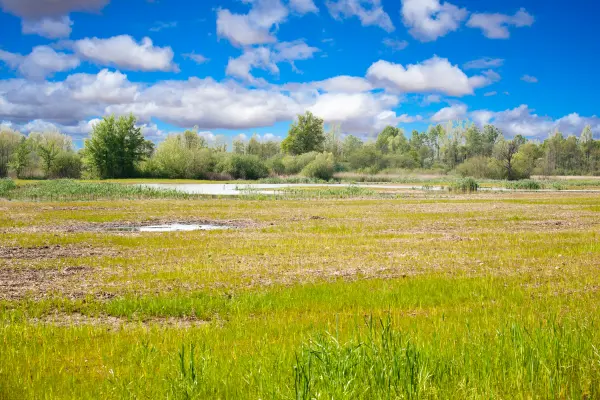Paul Hawken, the visionary founder and author behind Project Regeneration, made a significant impact with his keynote address at the last Impact X Summit Sydney, sharing crucial insights into the fight against climate change.
Highlighting the importance of changing our narrative around climate action, Hawken’s words shed light on the importance of community, collaboration, and regenerative practices in making tangible progress. His approach offers a fresh perspective on how we can collectively address the environmental challenges we face today.
Looking forward, excitement is growing for the Impact X Summit Sydney 2024. This event, set to take place on April 22nd and 23rd, coinciding with Earth Day, aims to push the boundaries of dialogue and action on climate and nature even further.
Themed “Climate & Nature 2030: Accelerating Partnerships for Shared Growth,” and supported by the NSW government and WWF, the summit seeks to drive the necessary rapid transformation towards net zero emissions and a nature-positive future. Notably, Paul Hawken is slated to speak again, offering attendees another opportunity to gain from his profound wisdom.
Below are the key insights from Paul Hawken’s speech, offering a glimpse into the strategies and narratives that can empower global and community-based action against climate change.
Language influences engagement; shifting from combative to inclusive narratives can empower collective action.
Paul Hawken: “After 50 years of being in the public sphere, most people are disengaged. And I think the disengagement comes from the way we’ve been talking to each other—all people—about climate. We’ve spoken about it in a way that sort of others it. We talk about fighting, tackling, combating climate change, and there are a lot of problems with that language, not the least of which are the war metaphors or sports metaphors as verbs. We talk about climate change as if it was a thing, an ‘it’ that we can fix, that we can do something about.”
Effective climate action focuses on tangible, relatable efforts that resonate with everyday life.
Paul Hawken: “I feel like the language we should be using is about home, about us really working together to do something quite different than fighting something that’s out there somewhere. Because climate, and this may be controversial, but I’ll say it anyway, climate actually doesn’t exist. It’s a good word; it’s handy; it’s a really good adjective. But it doesn’t exist in other words; you can’t find it, touch it, photograph it, measure it. What does exist is weather, no question about it.”
Regeneration counters extractive economies, promoting sustainable models that nurture life and ecological balance.
Paul Hawken: “But I think on a deeper level, what regeneration brings to us is a way of understanding. It’s a lens, and it’s a framework. And we have all been educated and brought up in an economic system that is extractive… So, we are sort of immersed in an economy that is basically taking. Taking is harming; harming is basically degeneration. So, we just have to accept the fact that we live in a degenerative economy every which way we look at it.”
Recognizing regeneration as fundamental to life urges us to support planet’s health through sustainable practices.
Paul Hawken: “And so, regeneration is innate. It’s not a concept. It may be a concept to somebody who hasn’t heard the word before. But what I mean by not a concept is that regeneration is the default mode of life. All life is regenerating… But it’s innate also in terms of who we are as human beings. And we are here, Homo sapiens, because we socialized, because we worked together, because we learned together.”
Storytelling transforms climate data into compelling narratives that inspire action and foster community.
Paul Hawken: “But if we’re going to succeed, we have to go to stories because facts do not change people’s minds… What changes people’s minds is stories. And stories connect us to each other and to our past, to our culture, to our families, our communities, to where we live. So, I just see that as innate in regeneration, in terms of the possibility. And it doesn’t mean that the probabilities of what is going wrong or what could go wrong are not valid. They’re very valid; they’re science-based.”
Watch Paul Hawken’s full keynote address:
***
Impact Leadership Journal (ILJ) is a Community Partner of Impact X, working together to create a net-zero, nature positive future that benefits all people and ensures the wellbeing of our planet. This video is published exclusively on this site with the permission of Impact X. To learn more and to join upcoming events, visit www.impactx.tech.











